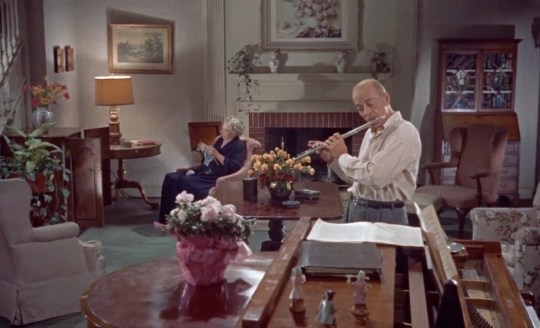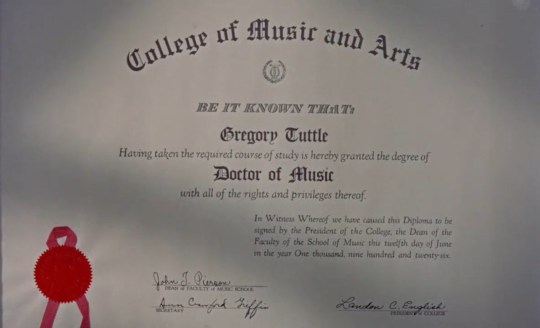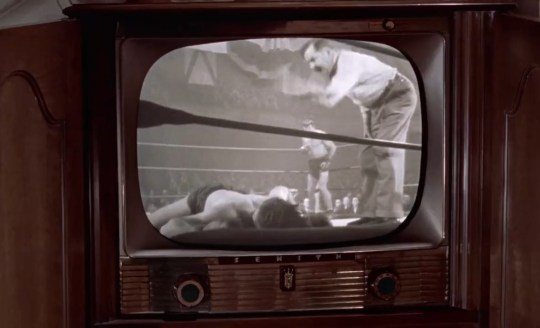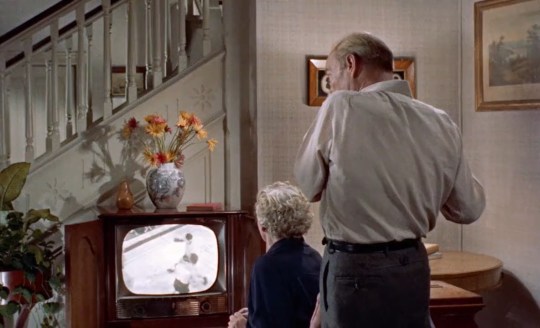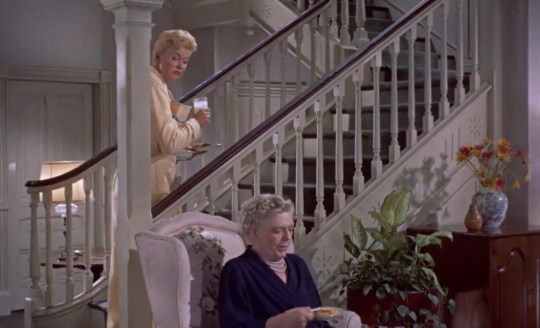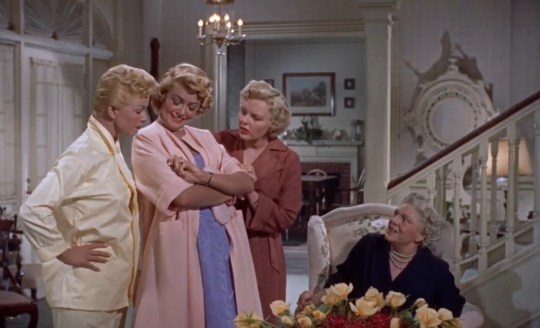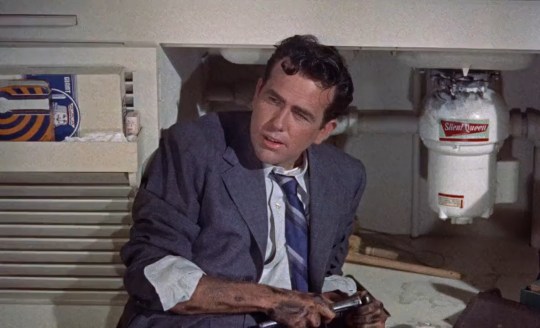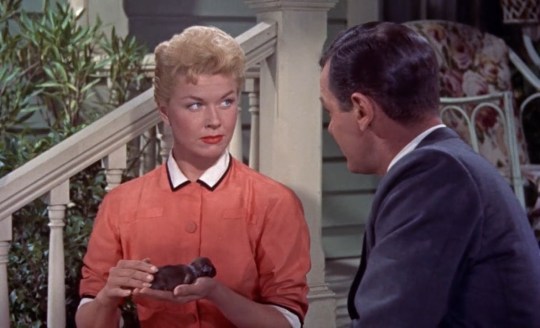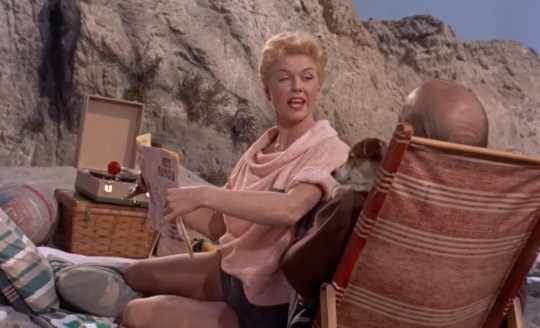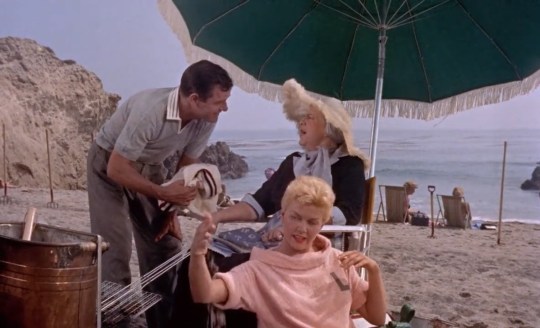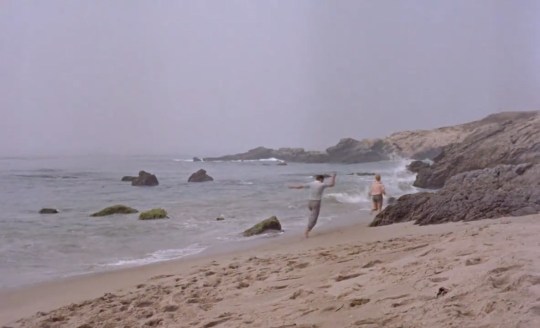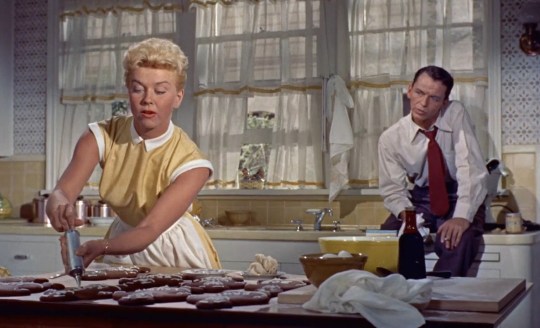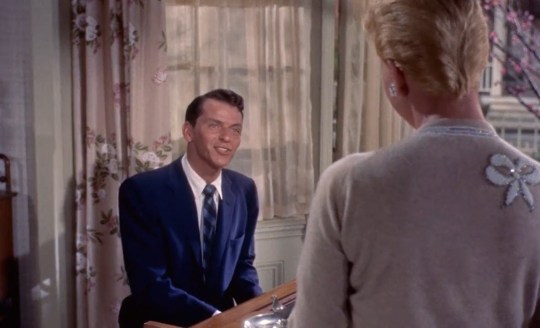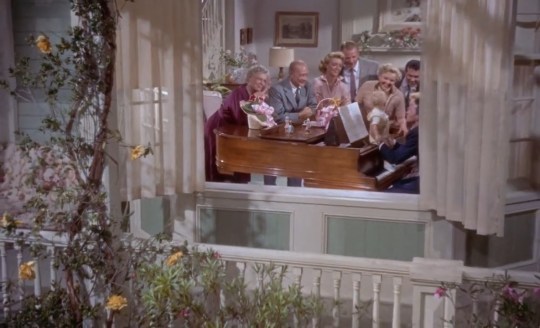#young!dorothy
Text
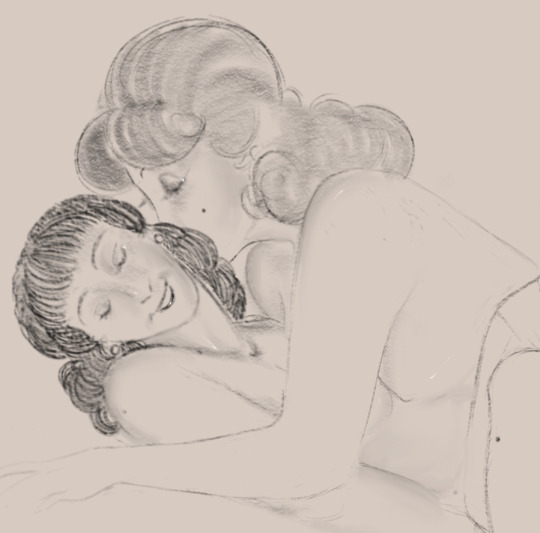
a little bit of younger!Blanche/Dorothy from a page of doodles :’)
#i have such an addiction to that ✨afterglow✨ vibe in art because oh my god. how sweet#i just#i have no excuses#forever my fav scenes to draw#the golden girls#young!dorothy#young!blanche#dorothy zbornak#blanche devereaux#they’re adorable and I’ve been drawing them lots#younger Blanche esp because ohhh my god 60s hair is sm fun to draw!!!#or at what was *definitely* her 60s hair in my head#testing tumblr has become a hobby of mine#artistic nudity is fine ?? right ???#<- I forgot to censor before I went to post and I’m too lazy to fix it. so 🤷🏻♀️
17 notes
·
View notes
Photo
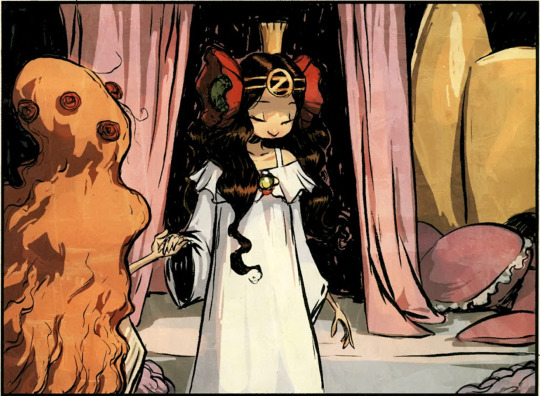

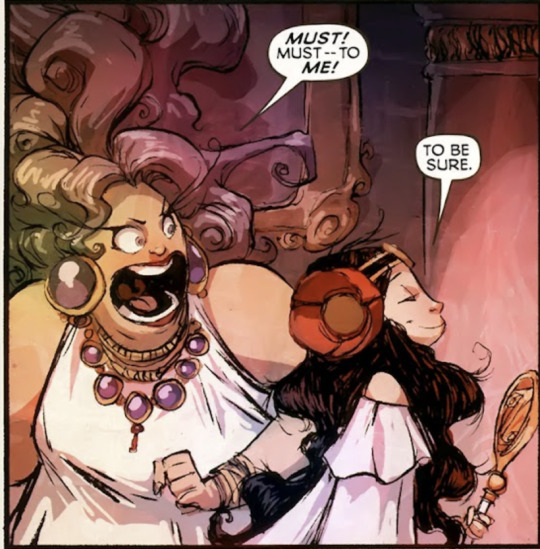

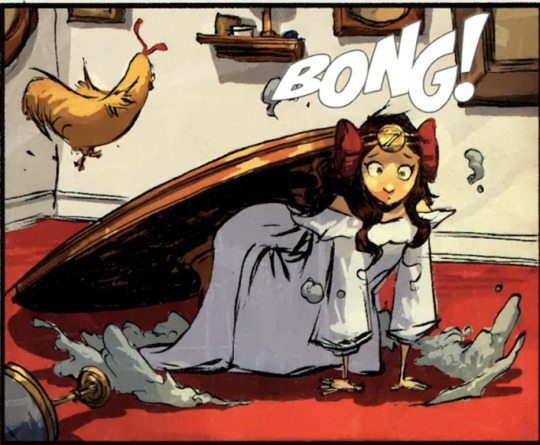
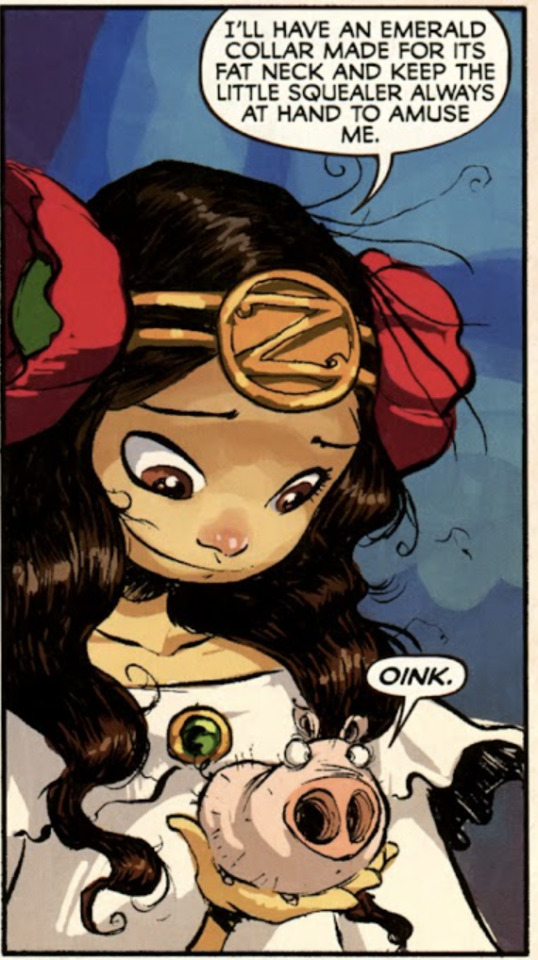

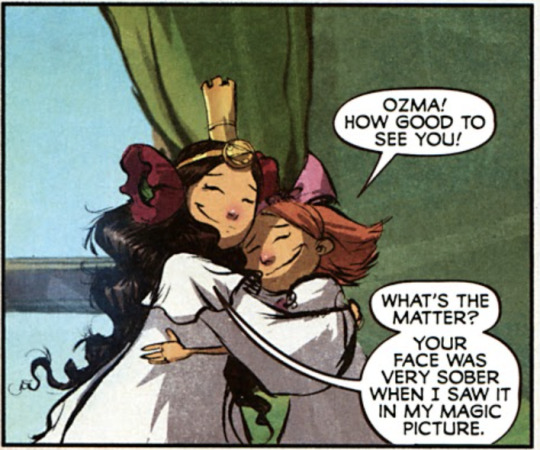
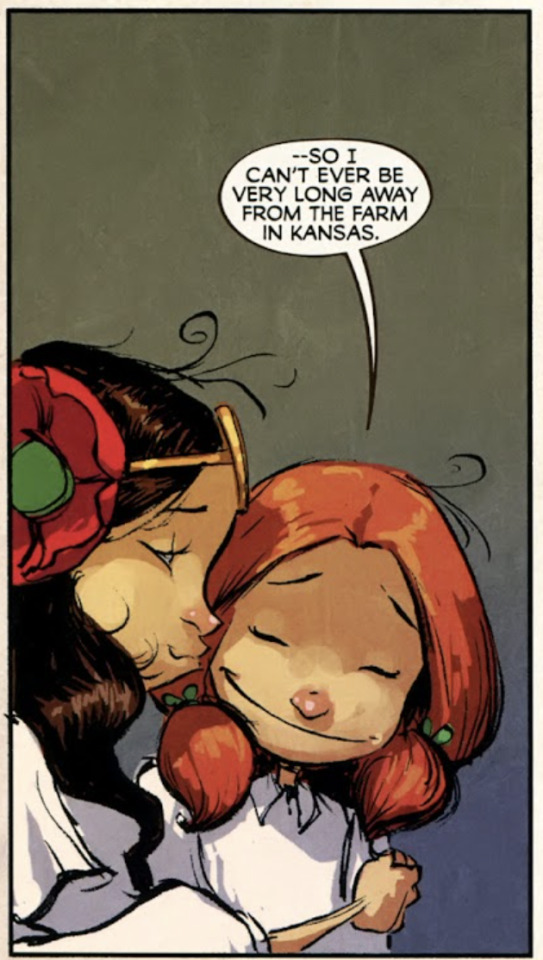
Words cannot describe how much I love Skottie Young’s Princess Ozma. 💕
#the wizard of oz#princess ozma#dorothy gale#dorzma#the scarecrow#the tin man#princess langwidere#the marvelous land of oz#ozma of oz#dorothy and the wizard in oz#the emerald city of oz#marvel comics#skottie young
183 notes
·
View notes
Text

The Wizard Of Oz
Art by Skottie Young
#Comics#Skottie Young#Wizard Of Oz#Fantasy#L Frank Baum#Fantasy Comics#Dorothy Gale#Scarecrow#Tim Woodman#Cowardly Lion#Art
51 notes
·
View notes
Text

Sharing stories
#Lion was fairly young in my version when he first met Dorothy and co#that's why his mane is so tiny here lol#the wizard of oz#dorothy gale#scarecrow#tin man#cowardly lion#toto#fanart#redesign#adaption
39 notes
·
View notes
Text
I was going through my drabbles folder when I came across this & I figured I might as well share it! I guess you could view it as an extension of I’m tired of wanting more / I think I’m finally worn. So uh, enjoy the Dorothy angst under the cut.
Is this it? Dorothy wonders as she stares out into their cold and dark living room, exhaustion wrapped around her like a thick fur coat. It's heavy and fuzzy at the same time; a weight pulling her towards the ground that serves as a protective layer from the world all the same — because nothing can quite make it through the thick haze anymore. Not entirely.
Her bare feet touch the cold hardwood floor and she should've been shivering by all accounts, but she doesn't feel the chill so much as she knows it's there, rationally. She's too tired to mind it. To feel— anything, really, aside from this gaping, desperate exhaustion.
Is this it? She wonders. The moment she'll finally break? The day she'll fall apart?
She's tired. Oh, so tired. Of Stan, of their life together, of the eternal charade she plays — the part of a loving wife and a happy mother; the part of a woman who chose this life, rather than that of a girl crudely pulled under by the currents of life.
She's asked herself this very same question before, and every time, she found she did fall apart — but only briefly. Short enough for her to pick up the pieces and glue herself back together again come morning, when she'll be even more exhausted, sure — but no one will notice anyway.
They never do.
She wonders if she'll fall apart enough for there to be no way back this time — if she'll shatter into so many tiny little pieces, there's no gluing them back together again.
Is it bad, to long for it in some strange, fearful way? At this point, her own involuntary destruction seems like the only salvation within reach.
#that fic comes back to haunt me every few weeks#i haven't even reread it after posting it but it's been living in my mind ever since#anyway someone go and give young dorothy a hug please#she deserves it <3#(did i just realize i have the power to write that? you bet i did)#the golden girls#my writing#dorothy zbornak
8 notes
·
View notes
Note
Lynnie Green was and still is a fan of Bea- she refers to herself as an 'acolyte' in an interview I listened to. She was a fan even before getting on the show, she followed Bea's theater career closely. She's also talked about how (I can't remember which appearance) at the end of filming Bea said she was going for a drink (I think they shared a dressing room) and how she regrets that Bea was obviously offering to take her out on the town and she was so, like, in awe that she fumbled it and she regrets it to this day because she wanted to cross that bridge from acolyte to confidant and thinks they could've been great friends. She's also said Bea kept in touch with her after filming and would always greet her warmly when they ran into each other or offer her tickets to some shows a few times over the years. OH and she's a lesbian, happily married to her wife (just found this out at the last Golden Con). she rocks, basically.
Anon, oh my god. The amount of incredible information you have given me.
First of all -- Lynnie referring to herself as an acolyte of Bea is incredible. Honestly wish I'd been able to follow Bea's career as closely as Lynnie did, if only for the chance to call myself her acolyte.
The story about Bea inviting her out for a drink and her fumbling the invitation is so relatable, oh my god. Can you imagine, getting to work with someone you admire so much? No -- getting to impersonate her?? And then she invites you out for a drink??? I would have died on the spot. Holy shit. Absolutely incredible. I'm so sorry for her that she didn't get to become Bea's friend but honestly I completely get her panic!
And Bea -- I know by now that she was a complete sweetheart, but this information just melts my heart!!! She kept in touch with her? She was warm to her and sent her tickets to her shows??? Oh ;-; what a sweet lovely person she was!!! I'm forever mad I didn't get the chance to see her in person! What a blessing upon this world!!
And on top of all this, on the first day of pride month, you come and tell me Lynnie is a happily married lesbian?? Anon you have made me so happy. So so so happy. Thank you so much!!! You're absolutely right, she rocks!
#a victory for lesbians everywhere!!! this pride month has begun so well my heart is full <3#no wonder young!dorothy has such lesbian energy!! (i say as if dorothy normally doesn't lmao) absolutely amazing news!!!#so happy for her and her wife <3 many happy wishes for them!!!#@hecatesbroom did mention she was a fan of bea! no wonder she knew her style and mannerisms so well!#that dressing room story is so relatable to me lmao i get her so much the poor darling#like. the mere *idea* of getting to have a drink with bea arthur... oh my god..........#i've been meaning to ask the community what golden cons are exactly but im pretty sure they're held in the us#so they're a bit inaccessible to me atm#i bet they're a lot of fun!!#anon THANK YOU so much for sending this ask. you made my night!!!#and once again: everybody say THANK YOU lynnie greene!!!!#i hope she knows we all find her incredible talented showstopping beautiful legendary a true gift and (now) also a wonderful person#(you know. sometimes i wonder what bea betty and rue would have thought of our little fandom space here#i've seen them talk of their gay fans with appreciation but i've never seen them talk about their *lesbian* fans#i like to think they would have been flattered to have such devoted fans!)#the golden girls#ask
8 notes
·
View notes
Text
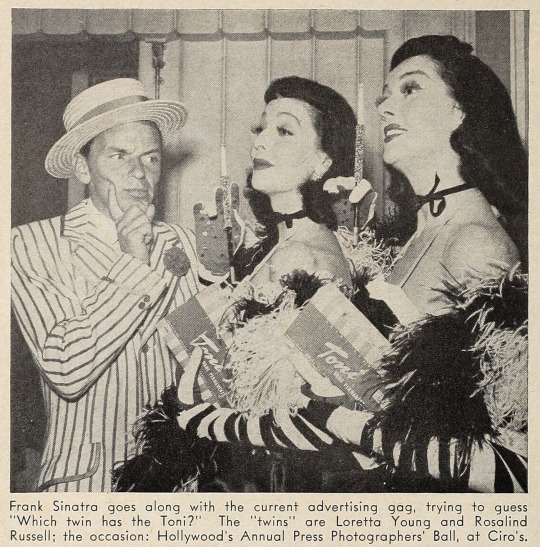



Modern Screen Magazine, January 1949.
#frank sinatra#loretta young#rosalind russell#ava gardner#george jessel#robert mitchum#dorothy spence#dorothy mitchum#roddy mcdowall#colleen townsend#1940s#modern screen magazine#old hollywood#old magazines#old movies#old hollywood glamour#old movie stars#vintage costumes#classic hollywood#40s film#40s movies#1940s cinema#1940s movies
36 notes
·
View notes
Text
"LITTLE WOMEN" (1978) Review
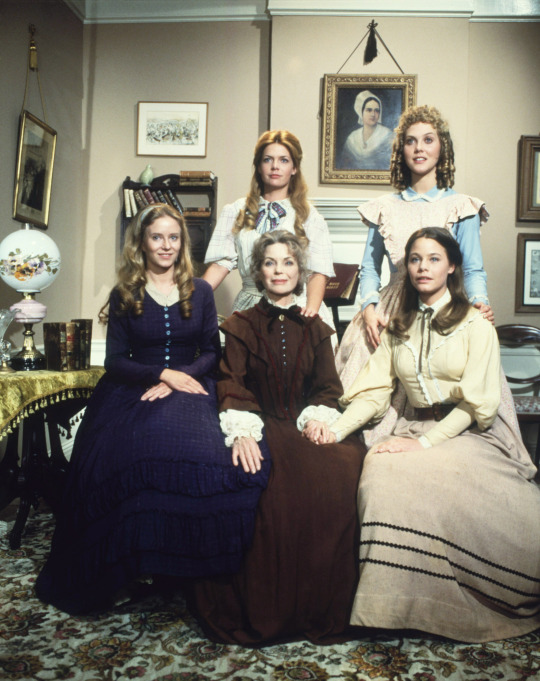
"LITTLE WOMEN" (1978) Review
There have been many adaptations of "Little Women", Louisa May Alcott's 1868 novel. And I have seen most, if not all of the live-action versions. But the first adaptation I have ever seen was NBC's adaptation that first aired back in 1978. If I might be honest, I ended up developing a rather high opinion of it.
Since my first viewing of 1978's "LITTLE WOMEN", I have seen other adaptations. And over the years, I had developed this belief that this television production from 1978 had not been good as I had originally believed. It took many years for me to give this two-part miniseries a second chance. "LITTLE WOMEN" told the story of Josephine (Jo) March and her three sisters during the 1860s - Meg, Beth and Amy. The two-part miniseries opened during the Christmas holidays in December 1861 and follow the sisters, their other family members and friends throughout the Civil War and the early post-war years. Because Jo is the main character, despite being the second sister, this adaptation of "Little Women" has the distinction of being the only version that allows her to serve as narrator.
After my recent re-watch, I could see why my opinion of "LITTLE WOMEN" had diminished over the years . . . at least from a superficial point-of-view. To be blunt, I was not that impressed by the miniseries' production values. The entire production was shot on the Universal Studios backlot and one could sometimes see the California hills in the background. Granted, I still believe set decorator Richard G. Goddard, art director Howard E. Johnson and cinematographer Joseph F. Biroc did the best they could to recreate 1860s Concord, Massachusetts, New York City and Italy. But I did have a problem with the miniseries' costume designs. On the surface, they seemed . . . serviceable for a television production set during the 1860s. But if I must be frank, the costumes also looked as if they had been taken from a costume warehouse for second-rate stage productions. Even worse, all or most of the actresses seemed to be wearing mid-to-late 1970s shoes underneath their mid-19th century dresses and gowns. I was shocked to discover that one of Hollywood's most iconic costume designer, Edith Head, had created the miniseries' costumes. So . . . what on earth happened? Head had created the costumes? "LITTLE WOMEN" was not even Head's first or last period drama. So, what happened?
Did I have any other problems with "LITTLE WOMEN"? Well . . . I did not care for leading actress Susan Dey's hairstyle in the second part of the miniseries. I realize her character, Jo March, had cut her hair to raise funds for her mother's journey to Washington D.C. But her hair never grew back. Never. Instead, it remained shorter than it originally was and styled into a bob. Why? And I had a problem with two particular performances. I will discuss one of them later. The other involved leading lady Susan Dey serving as the miniseries' narrator. Do not get me wrong. Dey is a fine actress and did the best she could. But I found her narration a bit clunky and unnecessary, thanks to the words provided to her by screenwriter Suzanne Clauser's teleplay.
Despite my quibbles, I found a lot to admire about "LITTLE WOMEN". I believe its status as a two-part miniseries, instead of a movie, screenwriter Suzanne Clauser had plenty of opportunities to fully adapt Alcott's novel with less shortcuts and more depth. I have always believed that Alcott's novel was basically a coming-of-age story for Jo March and her three sisters. To me, this made any adaptation of "LITTLE WOMEN" a major character study. And if there is one thing that the two-part miniseries did well was explore its characters and their situations with great depth.
This especially seemed to be the case of Jo's relationship with her neighbor and friend, Theodore "Laurie" Laurence, his personal relationship with his grandfather James Laurence, Amy's European trip and her romantic travails, and Meg's relationship with Laurie's tutor John Brooke. I was especially impressed by the production's handling of Jo's relationship with Professor Friedrich Bhaer. I found it very dynamic, thanks to Suzanne Clauser's screenplay, along with the performances involved. Some, but not all of the adaptations of Alcott's novel tend to forget - at times - that part of it spanned most of the U.S. Civil War. Fortunately, this adaptation never forgot. And as much as I seemed critical of the miniseries' narration, it also reminded television audiences that . . . yes, part of "LITTLE WOMEN" was partially set during the Civil War.
Speaking of performances, "LITTLE WOMEN" had the blessed luck to feature a first-rate cast. I may not have been impressed by the narration provided by Susan Dey (for which I blame another), I was more than impressed by her portrayal of the story's leading character, Josephine "Jo" March. I though she did a superb job in capturing Jo's mercurial personality and obsession with her developing profession as a writer. Meredith Baxter gave an excellent performance as the oldest March sister, Margaret "Meg" March. She conveyed Meg's vanity and obsession with the family's social status and stubborn refusal to give up her love for John Brooke. My only issue is that I believe the actress may have been a bit too old portraying a character that aged from 16 to her early 20s. Eve Plumb portrayed the shy, yet musical Elizabeth "Beth" March. I thought she did an excellent job of combining Beth's emotional, yet retiring nature and in the end, gave a very poignant performance. Ann Dusenberry was roughly 24 to 25 years old when she portrayed the youngest March sibling, Amy. Before my recent re-watch of "LITTLE WOMEN", I had assumed she was too old to portray a younger Amy. But upon my viewing, I realized that she actually managed to give a rather convincing and skillful performance of Amy during the war years (between ages 12 and 16) without to resorting to exaggerated histrionics. And I also admired her portrayal of the older Amy who found herself drawn between two men during her European trip.
I cannot deny that most of the actors who have portrayed Theodore "Laurie"/"Teddy" Laurence over the years gave some pretty damn good performances. But I believe that Richard Gilliland's portrayal of the emotional and moody "Laurie" has to be one of the two best I have ever seen, hands down. His only equal - at least in my eyes - is Jonah Hauer King's performance in the 2017 BBC miniseries. But if I had to choose my favorite portrayal of Laurie's stern, yet warm grandfather, James Laurence, it would be the one given by Hollywood icon Robert Young in this miniseries. May I be frank? I believe both actors provided some of the production's best dramatic moments in their depiction of the developing relationship between grandson and grandfather.
Dorothy McGuire gave a fine performance as Mrs. March aka "Marmie", the four sisters' mother. Thanks to the actress' performance, her Mrs. March seemed more like a well-rounded human being, instead of an archetype. Greer Garson was in fine form as the March family's tart-tongued, yet wealthy matriarch, Aunt Josephine March. William Shatner was excellent as the German-born professor who befriended Jo in New York City, Professor Friedrich Bhaer. Although I found his German accent a bit questionable, I cannot deny that he managed to provide a great deal of energy and complexity to Friedrich's relationship with Jo. Cliff Potts gave a solid performance as Meg's love interest and Laurie's tutor, John Brooke. I can say the same about Virginia Gregg, who portrayed the family's housekeeper, Hannah Mullet. I wish I could provide a better opinion of William Schallert's portrayal of the sisters' father, John March, but his presence in the miniseries seemed very limited, aside from one scene that featured the birth of Meg's children. One performance really failed to impress me and it came from John de Lancie, who portrayed Laurie's English-born classmate from Harvard and Amy's suitor, Frank Vaughan (Fred in the novel). Quite frankly, I found his performance a bit off. Knowing de Lancie for the first-rate actor he truly is, I suspect that between Alcott and screenwriter Suzanne Clauser's writing, the character ended up as a flat, one-note plot device - a situation that not even de Lancie could rise above.
Yes, I had some issues with "LITTLE WOMEN". I found some of the production values questionable, especially some of Edith Head's costumes, the hairstyles and one particular character. But overall, I believe it proved to be a first-rate adaptation of Louisa May Alcott's novel. If I must be frank, thanks to David Lowell Rich's direction, Suzanne Clauser's screenplay and a superb cast led by Susan Dey, I consider the 1978 adaptation of Alcott's novel to be among the three best I have ever seen.
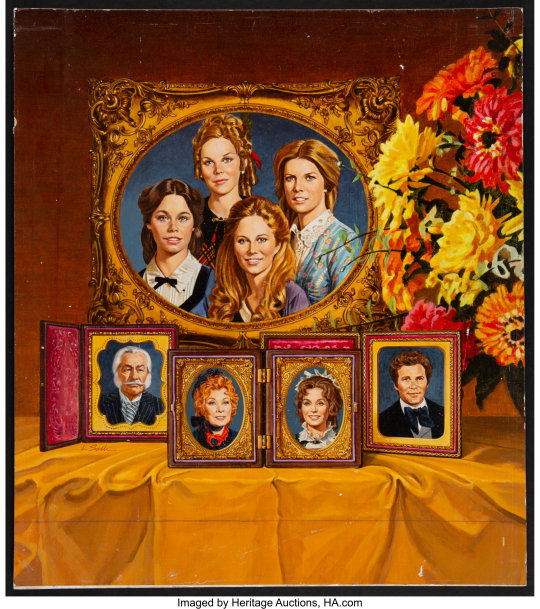
#little women#little women 1978#louisa may alcott#susan dey#jo march#meredith baxter#meg march#eve plumb#beth march#ann dusenberry#amy march#richard gilliland#theodore laurie laurence#dorothy mcguire#marmee march#robert young#greer garson#william shatner#john de lancie#david lowell rich#virginia gregg#cliff potts#u.s. civil war#gilded age#william schallert#joyce bulifant#carlene watkins#period drama#period dramas#costume dramas
11 notes
·
View notes
Text
I didn't ask for any of this. I didn't ask to be some kind of hero.
But when your whole life gets swept up by a tornado—taking you with it—you have no choice but to go along, you know?
Sure, I've read the books. I've seen the movies. I know the song about the rainbow and the happy little bluebirds. But I never expected Oz to look like this. To be a place where Good Witches can't be trusted, Wicked Witches may just be the good guys, and winged monkeys can be executed for acts of rebellion. There's still a yellow brick road—but even that's crumbling.
What happened? Dorothy.
They say she found a way to come back to Oz. They say she seized power and the power went to her head. And now no one is safe.
My name is Amy Gumm—and I'm the other girl from Kansas.
I've been recruited by the Revolutionary Order of the Wicked.
I've been trained to fight.
And I have a mission.

#book: dorothy must die#author: danielle paige#genre: fantasy#genre: retelling#genre: young adult#year: 2010s
9 notes
·
View notes
Text

a(nother) Dorothy
#I’ve had no motivation to finish that big antique shop au yet so#sketches & studies it is for now :)))#the golden girls#dorothy zbornak#young!dorothy#art#artist#artists on tumblr#digital art#sketch#ignore that ‘70’ in the corner this was a bigger page#that I also gave up on 😭
11 notes
·
View notes
Text



Dorothy McGuire, Ina Claire, and Robert Young for Edmund Goulding’s CLAUDIA released 80 years ago today.
10 notes
·
View notes
Text
🛑ALL YOUNG MICE BEWARE🛑
If you are ever on an expedition in the tallbeing's den DO NOT touch any food from this contraption! (Image below)

It is a deathly contraption designed to trap and kill young, careless adventures exactly like you!
Also do remember to inspect any food you find! For it is possible that the great beast might have poisoned it!
So watch out and squeak on!
#reblog to save a life#Young mice are so careless these days I swear#Dorothy lost two of her children this month alone#now she has only 11 left#how terrible
5 notes
·
View notes
Text

Robert Young-Dorothy Jordan "Alcohol prohibido" (The wet parade) 1932, de Victor Fleming.
5 notes
·
View notes
Text
By all accounts, I should've been working on one of my 5 ongoing wips. But when @the-eclectic-wonderer made this post (do yourself a favour and read the tags), and @eeblouissant posted Blanche in a leather jacket(!!) the next day, my hand slipped and I wrote a little Blanche/Rose Grease-inspired AU instead.
Summary
Rose Nylund has always been a good girl. That is, until she sees one Blanche Devereaux standing on the high school parking lot, leaning against a shiny new Ford, wearing a leather jacket.
Blanche Devereaux has always been a rebel and a charmer -- but never has she loved someone before. That is, until Rose Nylund shows up and steals her heart.
#should've probably given this another round of editing but i was anxious to get it done so i could focus on my other wips again lmao#this was so much fun to write#aside from reminding me of the high school stories i used to write as a young teen. OOF#the golden girls#blanche devereaux#rose nylund#it felt so weird not adding dorothy to the character tags on ao3#like wdym i didn't include *dorothy* in this??#my writing#fanfic#fanfiction#ao3
7 notes
·
View notes
Text
I'm not sure how to put this exactly, but. In some episodes, we really get to see Stan show some qualities, we get to see why Dorothy still had some good times with him, and that makes the whole 38-year-marriage-turned-bitter-divorce worse to me. Because it means he had it in him to be a good person and a good husband all that time and he just didn't choose to be.
#once again thinking about dorothy's marriage. it truly is my roman empire#this thought was sparked by watching s4e10: stan takes a wife#and he is genuinely not that bad in that episode! he's cheap and wears a girdle#but he's also supportive of dorothy. sweet. he helps her get much needed information on sophia. (though he did get her favorite food wrong)#and his fiancée seems to genuinely love him so he can't be that bad to her#but then this is the same man that made 38 years of dorothy's life horrible#cheated on her all throughout their marriage#insults her often and happily#left her for a young girl without even having the decency to tell her in person#and it's just. if he was horrid all the time it would be one thing#but *some* times he actually behaves like a decent person. so he knows how to do it!#he just doesn't think it was worth it to be that person for dorothy#and that feels so much worse to me#anyway. kudos to blanche and rose for stopping dorothy from making the biggest mistake of her life in the most hilarious possible way#they were a pleasure to watch#(this is also why the s6 plot where dorothy almost marries him again was always so strange to me?? like. i don't think they'd let her)#(or they'd at least try to convince her otherwise)#the golden girls
7 notes
·
View notes
